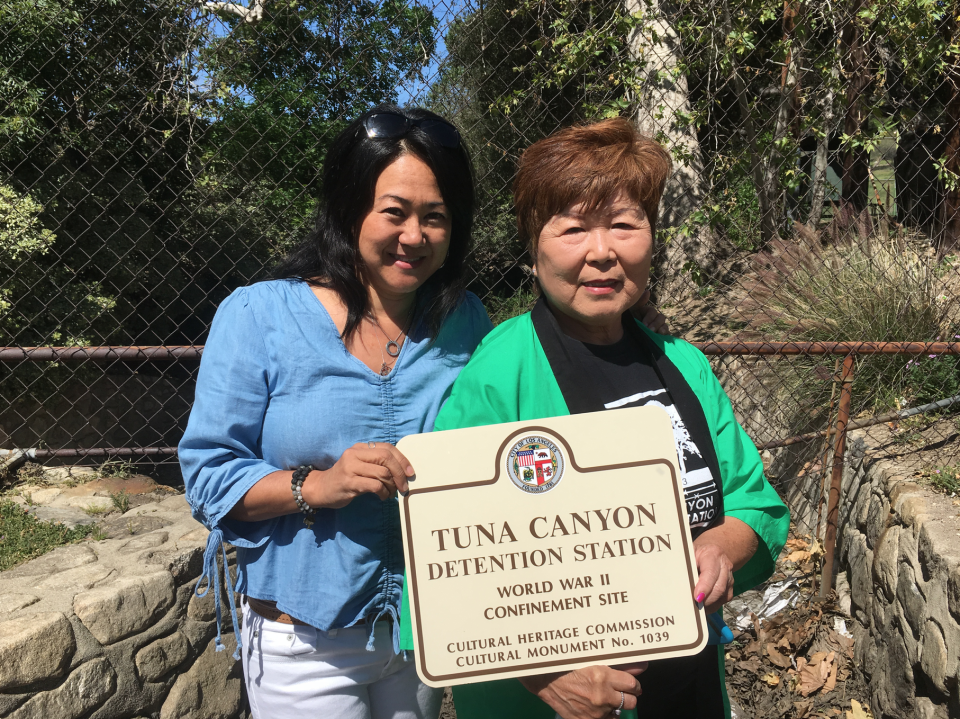Truth matters. Community matters. Your support makes both possible. LAist is one of the few places where news remains independent and free from political and corporate influence. Stand up for truth and for LAist. Make your year-end tax-deductible gift now.
This archival content was originally written for and published on KPCC.org. Keep in mind that links and images may no longer work — and references may be outdated.
More than 75 years after shutting down, an LA way station for WWII detainees gets its historical marker
Growing up in Burbank, Donna Sugimoto would sometimes pass the old Verdugo Hills Golf Course on La Tuna Canyon Road.
It never occurred to her that it was a dark part of her family's history - the place where her grandfather was sent after being taken from his home in Boyle Heights during World War II.
"I didn't know that my grandfather lived here, that he was held here, that he was taken against his will," said Sugimoto, 52, who lives in El Sereno. "I'd pass by here many times throughout my time growing up, when it was a golf course, and I had no idea."

During the war, the site was home to the Tuna Canyon Detention Station. More than 2,000 immigrants, mostly Japanese but also Italian and German, were held there, before many were sent to be incarcerated long-term in internment camps.
Altogether more than 100,000 people, mostly Japanese immigrants and their families, were held in internment camps by the federal government during the war.
On Thursday, Los Angeles city officials unveiled a new sign at the corner of La Tuna Canyon Road and Tujunga Canyon Boulevard, commemorating the site's history.
The sign stands at the intersection nearest to where the camp stood. On Thursday, Nancy Oda pointed through a rusted chain-link fence toward a grove of old oak trees about a hundred yards from the corner.

"What you see is the beginning of the camp," said Oda, president of the Tuna Canyon Detention Station Coalition, a group that's fought to have the site recognized. "This road is an old road. They would disembark here, off buses…and basically be checked, for contraband."

A visitation center stood close to the road, she said, where wives would visit their detained husbands and bring them clothing and toothbrushes.
"If they spoke in Japanese, there is a story that says that a bayonet was put to her throat," she said, "so they spoke English right away."
For Oda, there's a personal connection to the detainees. She was born in an internment camp at the California-Oregon border, where both her parents were held.
Oda and others want the historic monument to eventually extend to the oak grove, where the buildings actually stood.
But it's not a done deal: A developer who owns the property and planned to build homes there sued the city after it granted the site historic status back in 2013. According to the Los Angeles City Attorney's office, the lawsuit was dismissed, but there are two pending damage claims from the developer, so the case has yet to be resolved.
Sugimoto is among those who'd like to see more on the site commemorating its history. She said she never got to meet her grandfather. He died while he was still incarcerated, in a camp in Colorado. He was only in his fifties.
"It's very important for people to know that this is a very historical site," she said. "And a reminder of something that should never, ever happen again."

For the record: An earlier version of a caption on one of the historical photos incorrectly gave the closure date of the camp as May 1942. According to Oda, the camp closed in October 1943.













